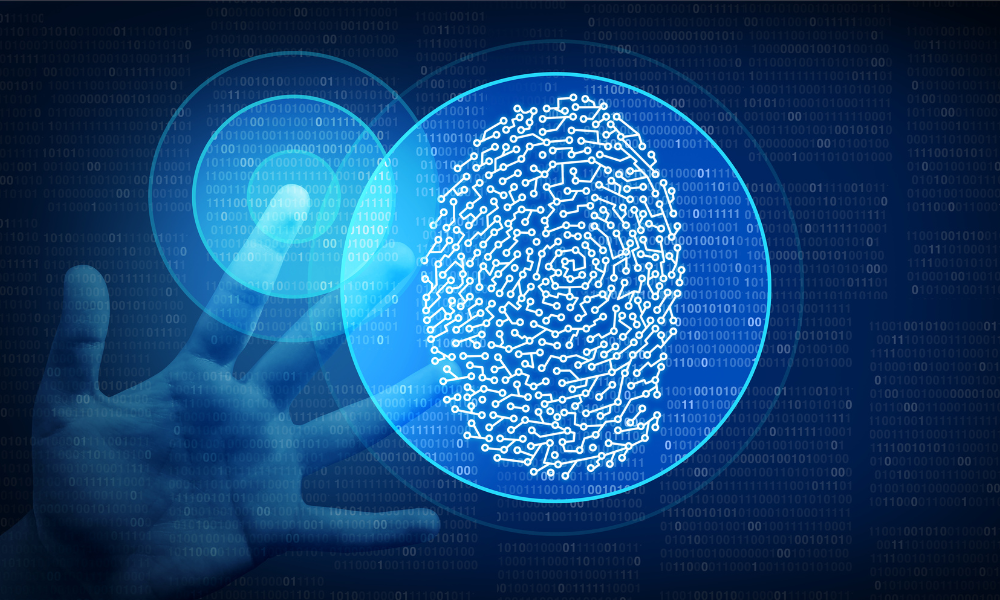Your digital identity isn’t just a username and password—it’s a record of your online activity, tracking where you log in, what data you access, and even who you interact with.
Think about your typical workday. You check emails, join virtual meetings, access shared documents, and communicate via Teams or Slack. Even during breaks, your digital presence continues—whether you’re browsing social media, online shopping, or messaging friends.
The same applies to businesses. Every employee’s digital identity is connected to critical company systems, and if it’s not secured properly, cybercriminals can use it as a gateway to your data. That’s where identity security comes in.
Why Small Businesses Need Identity Security
Cyber threats aren’t just a concern for large corporations—small and medium-sized businesses (SMBs) are increasingly targeted because they often have weaker security measures. Cybercriminals use AI-powered attacks, buy leaked passwords on the dark web, and create sophisticated phishing scams to gain access to business accounts.
If your business lacks strong identity security, a single compromised login could lead to:
- Data breaches – Leaking customer or financial data
- Reputational damage – Losing trust from clients and partners
- Financial losses – Ransomware, fines, and recovery costs
- Operational disruption – Downtime and lost productivity
Relying on basic cybersecurity measures like antivirus software or strong passwords is no longer enough. Implementing identity security is essential to protect your business, employees, and customers.
What Is Identity Security?
Identity security involves protecting the credentials and accounts that allow access to your business systems. This includes everything from login details to multi-factor authentication (MFA) and monitoring for suspicious activity.
It’s not just about protecting individual users—it’s about securing every device and system linked to those identities, ensuring that only authorised users can access sensitive data.
For UK businesses, strong identity security also plays a key role in cybersecurity compliance, helping meet standards like Cyber Essentials, Cyber Essentials Plus, IASME Cyber Assurance, and ISO 27001.
The Risks of Weak Identity Security
1. Small Businesses Are Prime Targets
Hackers often target SMBs because they assume security measures are less robust than in larger enterprises. If your defences are weak, your business could be an easy entry point—not just for your own data, but for the larger organisations you work with.
Example: If a hacker gains access to your email, they could send phishing messages to your clients, leading to further breaches.
2. Financial and Legal Consequences
A security breach can be financially devastating. Costs can include:
- Regulatory fines for non-compliance
- Legal fees from data protection violations
- Lost revenue from downtime or lost customers
- Recovery costs to fix security issues
By proactively investing in identity security, you avoid these risks and strengthen your business’s defences.
3. Loss of Customer Trust
Trust is critical for any business. If clients or partners find out their data has been compromised due to weak security on your end, your reputation suffers. And in today’s digital world, reputational damage can mean lost contracts and fewer opportunities.
Put simply: A strong security reputation can be a competitive advantage.
4. Compliance & Industry Standards
Cybersecurity isn’t just about protection—it’s also about meeting industry standards. In the UK, businesses handling sensitive data must comply with frameworks like:
- Cyber Essentials & Cyber Essentials Plus – The government-backed certification for basic cybersecurity hygiene
- IASME Cyber Assurance – An advanced certification covering data protection and GDPR compliance
- ISO 27001 – The international standard for information security management
Strong identity security is a key component of these certifications, ensuring that access to systems is tightly controlled and monitored.
How to Secure Your Business’s Digital Identity
1. Implement Multi-Factor Authentication (MFA)
MFA requires an extra verification step (like a mobile authentication app or a biometric scan) in addition to a password. This significantly reduces the risk of account takeovers, even if a password is leaked.
2. Use Strong Password Policies & Password Managers
- Require unique, complex passwords for every account
- Implement a password manager to store credentials securely
- Enable Self-Service Password Reset (SSPR) so employees can securely reset their own passwords without IT involvement
3. Conditional Access & Role-Based Permissions
- Conditional Access restricts access based on risk factors like location, device type, or login behaviour.
- Role-based permissions ensure that employees only have access to the data and systems necessary for their job.
This approach minimises the damage a hacker can do if they gain access to an employee’s account.
4. Single Sign-On (SSO) for Simplicity & Security
SSO allows employees to log in once and access multiple business systems without needing separate passwords. This improves security by reducing password fatigue and lowering the risk of password reuse.
5. Continuous Monitoring & Security Alerts
Implement tools that monitor login activity and detect unusual behaviour—such as logins from unfamiliar locations or devices. Suspicious activity should trigger immediate security alerts and, if necessary, block access until the login is verified.
Final Thoughts: Identity Security Is Business Security
Protecting your business’s digital identity is no longer optional—it’s a fundamental part of cybersecurity. Without it, you’re leaving your company vulnerable to cybercriminals, financial losses, and reputational damage.
With Cyber Essentials, IASME Cyber Assurance, and ISO 27001 compliance, your business can stay secure, gain client trust, and even unlock new opportunities by demonstrating strong cybersecurity practices.
If you’re not sure where to start, Dial A Geek can help. As one of the top Cyber Security companies in Bristol, we’ve helped over 1,000 businesses in Bristol and across the UK implement cybersecurity best practices and meet compliance standards such as Cyber Essentials, ISO 27001 and IASME Cyber Assurance.
Book a free consultation with Gildas Jones today to discuss how we can secure your business’s digital identity.

